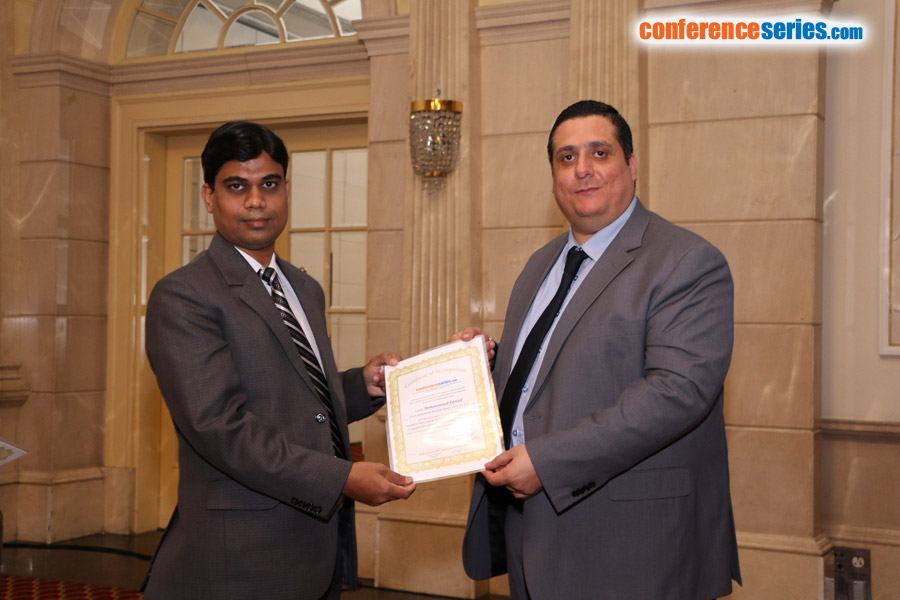
Mohamamad Fareed
Imam Muhammad ibn Saud Islamic University, KSA
Title: Oxidative stress and genetic susceptibility among farmers occupationally exposed to organophosphate pesticides
Biography
Biography: Mohamamad Fareed
Abstract
Statement of the Problem: During agricultural work practices, spraying of pesticides without following any protective measures lead to various adverse health effects among farmers.
Methodology & Theoretical Orientation: A case control study was performed among 52 male pesticide sprayers working in mango orchards of Lucknow district in a northern state of India, compared with 30 control subjects. Pesticide sprayers were selected on the basis of clinical examination for acute and chronic health symptoms associated with pesticide exposure. Among those pesticide sprayers who reported these symptoms, investigation of oxidative stress parameters and genetic polymorphism of Paraoxonase 1 gene (PON1) for the assessment of intra individual susceptibility for organophosphate pesticides was performed. Cholinesterase level as biomarker of OP pesticides was investigated to ensure the exposure among pesticide sprayers.
Findings: Clinical examination of pesticide sprayers showed some acute and chronic symptoms for different organ systems. Activities of acetylcholinesterase and butyrylcholinesterase were found to be significantly depleted (p<0.05) among pesticide sprayers as compared to controls. Activity of blood CAT was found to be higher but not found to be statistically significant; activity of blood GPx was found to be significantly higher (p<0.05); blood GSH was found to be significantly decreased (p<0.05); blood MDA level was found to be more in pesticide sprayers as compared to control subjects. A decrease in the percentage of high-activity genotypes at both L55M and Q192R was observed in the farm workers reporting symptoms of pesticide toxicity.
Conclusion & Significance: Our study shows that occupational exposure of OP pesticides lead to alterations in anti-oxidants enzymes, eventually leading to the oxidative stress condition. PON1 gene polymorphisms influence the susceptibility of OP pesticides, hence it may be considered a useful biomarker of genetic susceptibility for the assessment of inter individual risk of OP pesticide exposure.





